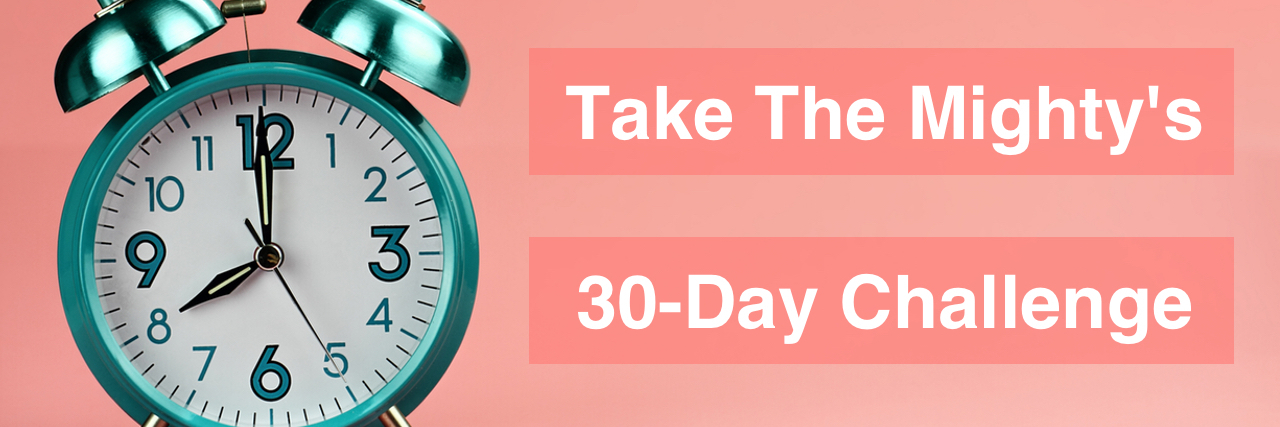Perhaps one of the hardest things to manage when living with a chronic illness, disability or mental illness is your sleep cycle. Insomnia, fatigue, painsomnia, anxiety — even the list of things that can potentially keep you up at night is, well, enough to keep you from getting some much needed zzz’s.
To help you get some shut eye, August’s My Mighty Month challenge is focused on building healthier sleep habits. If you’re someone who doesn’t have any sort of sleep routine, this month’s challenge might be our toughest yet.
To help distinguish healthy sleep habits from unhealthy ones, we spoke to Harneet K. Walia, MD, a physician at the Cleveland Clinic’s Sleep Disorders Center.
According to Dr. Walia, the first step in building a healthy sleep routine is dedicating a set number of hours to sleep. Of course, setting aside time for sleep doesn’t always pan out the way we want it to, but if you can, you should aim for around seven to eight hours. However, if you find yourself consistently needing more than seven or eight hours of sleep because of symptoms of your medication or condition, that’s OK too.
If you are consistently sleeping too much, to the point it’s interfering with your life, it’s worth having a discussion with your doctor to make sure your medications and condition are under control. You may also want to be screened for sleep disorders such as sleep apnea or restless leg syndrome, which can affect the quality of your sleep.
Beyond how many hours you sleep, your bed time — and wake up time — are important as well. “A very important aspect of sleep hygiene is to maintain a set sleep-wake schedule and not have a lot of variation in [your] schedule,” Wallia advised.
Following a schedule can help your body recognize, on its own, when it’s time to go to bed and when it’s time to wake up. Set a goal — and an alarm — to help you fall asleep and wake-up at set times. While this can vary a little bit on the weekends, or days you don’t work, you don’t want to change your routine too much. Otherwise, it won’t stick.
Once you’ve decided on your bed and wake-up times, it’s time to reevaluate the daytime activities that might be sabotaging your sleep: naps and caffeine. If you are consistently having trouble falling asleep at night, consider cutting back on any soda, coffee or tea you might be drinking — and don’t drink any caffeinated beverages past the early afternoon.
If you need to nap, on the other hand, that’s OK, but you should try to limit your naps to one per day, earlier in the day, snoozing for no more than 30 minutes. Of course, if you are having a flare, it’s best to do what’s best for your body. Don’t deprive yourself if your body is telling you it needs rest.
Walia also recommends keeping your bedroom dark and cool at night and limiting any exercise to no later than four hours before bed.
And, of course, the tip you’ve probably heard 10,000 times before — no screens before, or in, bed. (Yes, that includes Netflix.) “The blue light [from your device] can disrupt sleep and circadian rhythms so they should limit screen time and put away their devices for a least an hour before bedtime,” Walia said, adding, “It can be mentally stimulating as well so that would be the second reason to avoid screen time.”
In addition to banishing screens, you’ll also want to limit your bedroom to just sleeping. “Try not to think while you’re sleeping,” Walia said, noting:
If you feel like it’s been 20 minutes in your mind, not by watching the clock, you should leave the bedroom, do something uninteresting, come back only when you are sleepy because we want the mind to
know that is just to sleep.
You should also leave the bedroom if you are in pain and can’t sleep. “Pain and sleep have a bi-directional relationship which means the relationship can go both ways,” she explained. “Pain can disrupt sleep, and then disrupted sleep can also promote pain.”
If your pain is keeping you awake, don’t spend a lot of time trying to fall asleep. Leave the bedroom, do something boring (without screens) and return when you feel better.
If all of this seems impossible to remember, don’t worry, we’ve got weekly email reminders to help you throughout the month as well as a free downloadable sleep journal.
That said, take this month’s challenge one step at a time. You don’t have to incorporate every habit on day one. Instead, you can add something new every few days and use our sleep journal to track whether or not that habit is making a difference in your sleep quality. If you notice once change is working for you, try incorporating a second one, and go from there.
Want to make August a Mighty Month? Join us on Facebook at My Mighty Month, and don’t forget to tag any social media posts with #MyMightyMonth. You can also sign up for our weekly email, (select “Mighty Monthly Challenges” from the newsletter options), and we’ll send you weekly emails with boring self-care suggestions and reminders. Don’t need any reminders? That works too. Simply download our free sleep journal to keep track of your progress.

